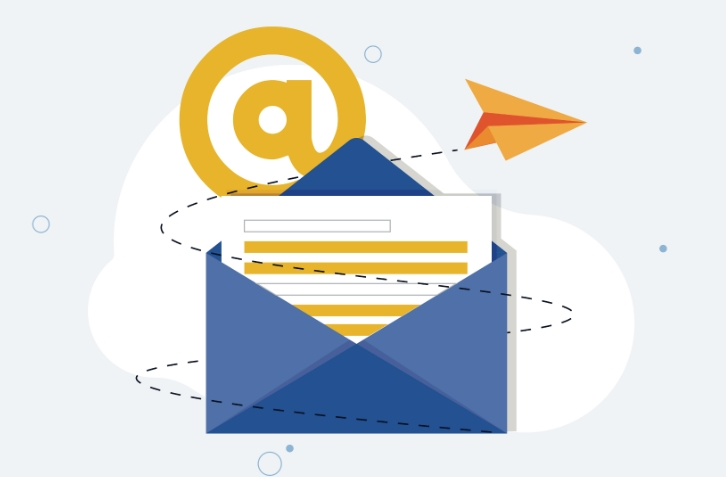
Imagine you’re scrolling through your inbox, bombarded with emails from various brands. Suddenly, you spot an email with a long, messy URL. Does it entice you to click? Probably not.
Long URLs can be a real turn-off for readers, making your emails look cluttered and unprofessional. But fear not, email marketers! There’s a simple yet powerful solution: URL shorteners.
Think of URL shorteners as the magic wands of email marketing. They take those long, unwieldy URLs and transform them into short, easy-to-read links that are a breeze to click. This not only makes your emails look cleaner and more professional, but it also boosts your email marketing game in ways you might not expect.
In this article, we’ll dive deep into the world of URL shorteners and explore how they can revolutionize your email marketing strategy. We’ll discuss the challenges of long URLs, the benefits of using URL shorteners, and how to choose the right tool for your needs. So, buckle up and get ready to unlock the power of URL shorteners for your email campaigns!
Contents
The Challenges of Long URLs in Email Marketing

Long URLs can pose several challenges for email marketers:
- Cluttered and Unprofessional Appearance: Long URLs can make emails look cluttered and unprofessional, distracting recipients from the main message.
- Limited Character Count: Email clients often have character limits, which can be easily exceeded by long URLs. This can lead to truncated or incomplete links, which can be confusing for recipients.
- Tracking and Analytics Difficulties: Long URLs can make it difficult to track clicks and analyze user behavior. This can hinder marketers’ ability to measure the effectiveness of their campaigns.
The Power of URL Shorteners
URL shorteners offer several advantages that can significantly improve the effectiveness of email marketing campaigns:
- Clean and Concise Links: Shortened URLs are more visually appealing and easier to read, making them more likely to be clicked on.
- Enhanced Click-Through Rates: Shorter links can lead to higher click-through rates (CTRs) as they are less likely to be ignored or overlooked.
- Simplified Tracking and Measurement: URL shorteners often provide advanced tracking and analytics features, making it easier to measure the performance of your email campaigns.
Key Benefits of URL Shorteners for Email Marketing
Using URL shorteners in your email marketing campaigns can offer several key benefits:
- Improved Clickability and Engagement: Shorter, more visually appealing links can encourage recipients to click through to your content, leading to increased engagement.
- Enhanced Brand Reputation: Branded URL shorteners can help to improve your brand’s reputation by creating a more professional and consistent appearance.
- Streamlined Analytics and Reporting: URL shorteners often provide detailed analytics, making it easier to track clicks, conversions, and other key metrics.
- Increased Mobile-Friendliness: Shorter URLs are less likely to be truncated on mobile devices, improving the user experience for mobile users.
Choosing the Right URL Shortener
When selecting a URL shortener for your email marketing campaigns, there are several factors to consider:
- Customization Options: Look for a URL shortener that allows you to customize your shortened links with your brand name or domain.
- Branding and Personalization: Consider whether the URL shortener offers features for branding your shortened links and personalizing them for specific campaigns.
- Advanced Analytics Features: If you need detailed tracking and analytics, look for a URL shortener that offers advanced features such as click tracking, conversion tracking, and geographic data.
- Security and Privacy: Ensure that the URL shortener you choose has strong security measures in place to protect your data and prevent phishing attacks.
Best Practices for Using URL Shorteners in Email Marketing
To get the most out of URL shorteners in your email marketing campaigns, follow these best practices:
- Use Relevant and Descriptive Shortened URLs: Create shortened URLs that are relevant to the content you are linking to and easy to remember.
- Avoid Overly Shortened URLs: While shorter URLs are generally better, avoid creating URLs that are so short they are difficult to understand or remember.
- Test and Track Performance: A/B test different shortened URLs to see which ones perform best. Track click-through rates, conversion rates, and other metrics to measure the effectiveness of your campaigns.
- Use Branded Shortened URLs: Create branded shortened URLs to improve brand recognition and consistency.
Examples of URL Shorteners for Email Marketing
There are many excellent URL shortening services available. Here are a few popular options:
- Bitly: A widely used and reliable URL shortener with advanced features such as link tracking, analytics, and branding options.
- Rebrandly: A premium URL shortener that offers customizable branding, advanced analytics, and security features.
- ShortURLat: A simple and straightforward URL shortener that is easy to use and provides basic tracking features.
Conclusion
By using URL shorteners in your email marketing campaigns, you can improve the appearance, clickability, and effectiveness of your emails. By following the best practices outlined in this article, you can maximize the benefits of URL shorteners and achieve your marketing goals.
FAQs
-
How do URL shorteners work?
URL shorteners replace long URLs with shorter, more manageable links. When someone clicks on a shortened link, they are redirected to the original destination.
-
Are URL shorteners safe to use?
Yes, URL shorteners are generally safe to use. However, it’s important to choose reputable services and be cautious of suspicious links.
-
What are some other benefits of using URL shorteners?
In addition to the benefits mentioned in the article, URL shorteners can also help you:
1. Improve your email deliverability rates
2. Track the performance of your social media campaigns
Leave a Reply